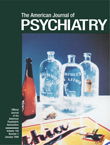Fluoxetine Versus Phenelzine in Obsessive- Compulsive Disorder
To the Editor: The article by Michael A. Jenike, M.D., and colleagues (1) reporting the results of a placebo-controlled trial of fluoxetine and phenelzine for obsessive-compulsive disorder (OCD) contains some serious flaws.
First, although the maximum recommended dose of fluoxetine, 80 mg/day, was administered, the maximum recommended dose of phenelzine, 90 mg/day, was not. Instead, only a dose of 60 mg/day was given. This was probably based on the ease of administering one to four 20-mg doses of fluoxetine and one to four 15-mg doses of phenelzine. In any event, comparing the maximum dose of one drug to a lesser dose of another drug would invalidate any conclusions regarding comparative efficacy. The authors’ statement, “Phenelzine was no better than placebo” would be more accurate if it began with the phrase, “Low-dose phenelzine.” In our experience and in the literature (2), when phenelzine is used for OCD, doses as high as 105 mg/day may be needed. In addition, measuring the monoamine oxidase (MAO) inhibition level is questionable here because, unlike depression, the level of MAO inhibition required for OCD responsiveness has not been established.
Another problem with the article is that the use of the exclusion criteria was confusing. Initially, the authors stated, “Patients with a history of other significant psychiatric disorders were excluded from the study.” Later they say that “none of seven responders in the phenelzine group had a lifetime history of panic or agoraphobia, compared with three of seven responders in the fluoxetine group.” Were these conditions excluded or were they regarded as insignificant? It is also difficult to understand why patients with comorbid anxiety disorders would be excluded if the study was attempting to see if OCD patients with high levels of anxiety were preferentially responsive to MAO inhibitors (MAOIs).As a result of these flaws, the article contributes little. The statement that phenelzine was no better than placebo is misleading and may do harm by discouraging its use as a beneficial second-line agent, especially when OCD and generalized social phobia coexist. MAOIs may be particularly effective in these cases (2).Further research, including careful head-to-head drug trials, is needed.
1. Jenike MA, Baer L, Minichiello WE, Rauch SL, Buttolph ML: Placebo-controlled trial of fluoxetine and phenelzine for obsessive-compulsive disorder. Am J Psychiatry 1997; 154:1261–1264Link, Google Scholar
2. Carrasco JL, Hollander E, Schneier FR, Liebowitz MR: Treatment outcome of obsessive compulsive disorder with comorbid social phobia. J Clin Psychiatry 1992; 53:387–391Medline, Google Scholar



